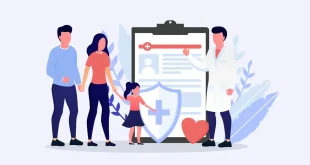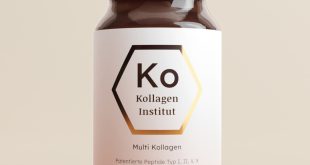In 2015, just a few days after feeling unwell, I was admitted to the hospital with a diagnosis of septic shock. It is a life-threatening condition with over 50 percent mortality.
I had never heard of sepsis or septic shock before spending a week in the hospital, but it nearly killed me. I was lucky that I received treatment when I did.
I survived septic shock and made a full recovery. At least that’s what they told me. It took a while, but I learned that depression and anxiety, along with other symptoms I experienced after recovering my physical health, were symptoms of post-traumatic stress disorder (PTSD) and were associated with my near-death experience.
Trusted Source Post Intensive Care Syndrome (PICS), or a set of health problems that occur after a critical illness, is not something I heard about until I spent two years struggling with it.
But of the more than 5.7 million people admitted to intensive care units (ICUs) each year in the United States, my experience is nothing out of the ordinary. According to the Society for Critical Care Medicine, PICS affects:
33 percent of all ventilated patients
up to 50 percent of patients who stay in the intensive care unit for at least one week
50 percent of patients hospitalized with sepsis (like me)
Symptoms of PICS include:
muscle weakness and balance problems
cognitive problems and memory loss
anxiety
depression
nightmares
I experienced all of the symptoms on this list within a few months of being in the intensive care unit.
And yet, while my hospital records had a list of follow-up visits to my heart, kidney, and lung specialists, my follow-up did not include any discussion of my mental health.
Every health worker who saw me (and there were many) told me how lucky I was to survive sepsis and recover so quickly.
None of them ever told me that I was more than 1 in 3 likely to have PTSD symptoms after leaving the hospital. prevent my illness. I felt lethargic and depressed.
Although physical weakness could be explained by illness, the painful thoughts of death and nightmares that made me feel anxious for hours after waking up made no sense to me.
I survived clinical death! I should have felt happy, happy, like a superwoman! Instead, I felt scared and gloomy.
Immediately after I was released from the hospital, it was easy to dismiss my PICS symptoms as side effects of my illness.
I was mentally hazy and forgetful, as if I was sleep deprived, even when I slept 8 to 10 hours. I had problems with balance in the shower and on the escalators, as a result I felt dizzy and panicked.
I was anxious and quick to anger. A lighthearted joke meant to cheer me up will make me feel angry. I chalked it up to the fact that I don’t like feeling helpless and weak.
Hearing from one healthcare worker, “It takes time to recover from septic shock,” another says, “You recovered so quickly! You’re lucky!” was confusing and disorienting. Did I feel better or not? The hospital room scene in the movie could have caused feelings of anxiety and caused panic attack-like chest tightness. Routine things like taking my asthma medication made my heart race. In my daily routine there was a constant feeling of hidden fear.
I don’t know if my PICS got better or I just got used to it, but life was busy and busy and I tried not to think about how I almost died.
In June 2017, I felt unwell and recognized clear signs of pneumonia. I immediately went to the hospital, they diagnosed me and prescribed antibiotics.
Six days later I saw a splash of blackness in my eye, like a flock of birds in my field of vision. Completely unrelated to my pneumonia, I had a retinal tear that required immediate treatment.
Retinal surgery is unpleasant and not without complications, but is generally not life-threatening. And yet, when I was strapped to the operating table, my fight-or-flight instinct completely switched to flight mode. I was excited and asked several questions during the operation, even while under twilight anesthesia.
However, my retinal surgery went well and I was discharged the same day. But I couldn’t stop thinking about pain, injury, and death. Although these thoughts diminished and I got used to the “new normal” contemplation of my death, when I did things like a routine blood test, death suddenly became everything. I could think.
Getting help for PICS
PICS has no time limit and can be run almost
 The Care Up
The Care Up




